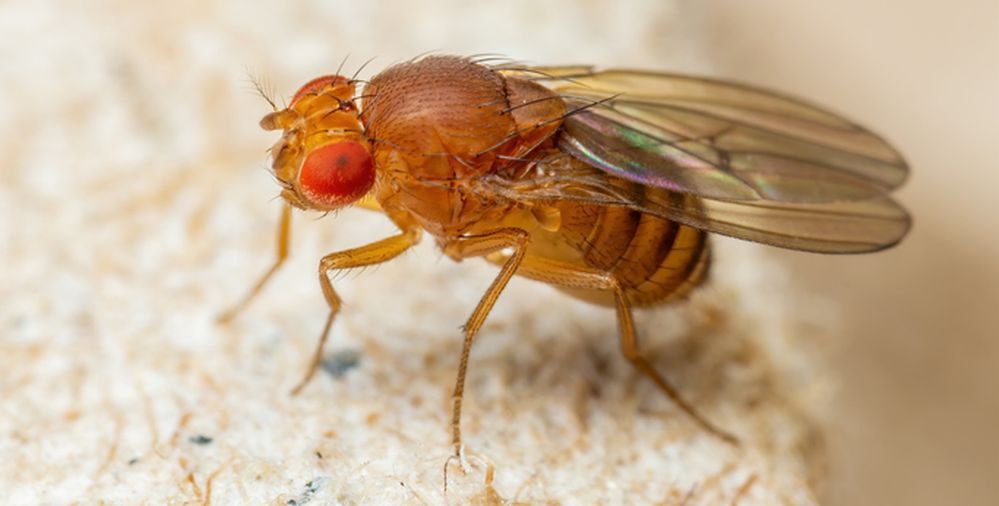Microbes such as yeast and E. coli have been the workhorses of recombinant protein production for decades. But could the humble fruit fly give them a run for their money?
It’s early days, but given the upfront capex and high running costs associated with microbial fermentation, Canadian startup Future Fields reckons its genetically engineered fruit flies could have the edge as a production platform for pricey proteins from FGF2 to transferrin.
[Disclosure: AFN’s parent company AgFunder is an investor in Future Fields.]
‘We can raise insects at monstrous scales compared to fermentation and other cell-based systems’
Compared with microbes fed on sugar in large steel fermentation tanks, fruit flies are pretty low-maintenance, requiring far less water and food (mostly yeast), and pretty low-budget accommodation, cofounder and CEO Matt Anderson-Baron told AgFunder News (AFN) at the SynBioBeta synthetic biology conference last month.
“There are many advantages, but really the main thing is scalability and cost. We can raise insects at monstrous scale compared to fermentation and other cell-based systems, mainly because of the infrastructure requirements.
“Bioreactors [used in microbial fermentation] are expensive to buy, energy intensive and costly to run, and hard to procure versus what we do, where the infrastructure is minimal, so it allows us to scale much more effectively.”
Robust and resilient manufacturing platform
As they are animals, fruit flies also possess superior internal machinery vs bacteria or yeast cells to facilitate the production of some of the more complex animal proteins used in things like cell culture media for cultivated meat, he claimed.
“There are a lot of other advantages in terms of the quality of the proteins that we can produce and the speed, because fermentation and cell-based systems are very fragile; very specific conditions are needed to get cells to grow well and produce a protein.
“Fruit flies are incredibly resilient as a manufacturing platform that can handle all these perturbations and still get great yields and still produce quality products.”
Finally, insect material left after the harvesting and purification process can also be refined into useful material, such as chitosan, he said, while insect waste (‘frass’) can be used as fertilizer. The aim, he said, is to be “waste free in our entire upstream process.”
Compare that to a fermentation tank full of bacteria engineered to produce proteins, he said, noting that you can’t just dump E.coli culture down the drain.

New facility should be operational in early 2024
Armed with $11.2 million from a recent seed extension round, Future Fields is building out a facility next to its HQ in Edmonton to produce recombinant proteins at kilogram scale in 10,000 square feet of manufacturing space. This will likely be operational early next year, said Anderson-Baron.
While it specializes in producing growth factors for cultivated meat media, it is also developing a suite of human recombinant protein products targeting medical research and biopharmaceuticals, said Anderson-Baron.
“I think it would be very challenging to raise more capital if that’s [cultivated meat] your only market, just because of the way investor sentiments have changed. So fortunately for us, our platform can be used in so many different markets.”





